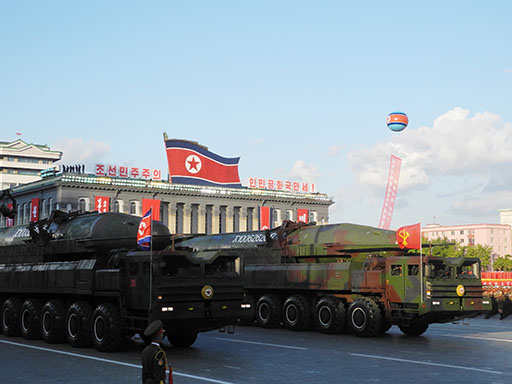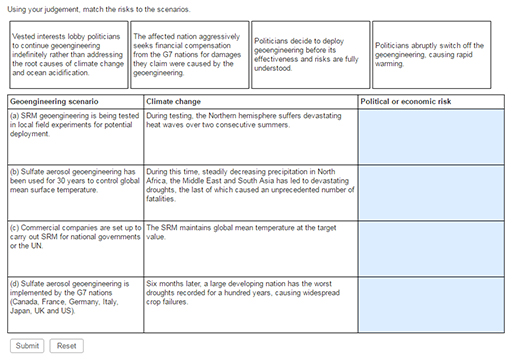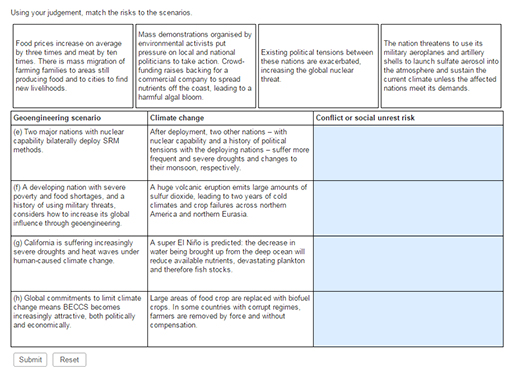3.5 Social risks
Some experts have predicted serious social risks, particularly for SRM, which arise from existing potential threats. India, Pakistan, the Russian Federation and North Korea (Figure 8) are among the states that either have nuclear weapons or are known to have conducted nuclear tests.
If invasive outsiders and provocateurs touch us even slightly, we will not be forgiving in the least and sternly answer with a merciless, holy war of justice.

In the following activity, which is in two parts, you will consider serious social risks that could potentially arise as a consequence of scenarios of geoengineering and climate change. The first part of the activity considers political and economic risks, and the second part considers risks of conflict and social unrest. Using your judgement, match the risks to the scenarios.
Activity 2 Plausible risks
While these doomsday scenarios might not be likely, their serious impacts mean they are all risks that have been considered by experts in the field. The above list was inspired by David Keith’s (2013) book which is largely in favour of SRM geoengineering.
There is one more social-based risk that is very commonly invoked: moral hazard. As Adam Corner put it, writing about his research on this topic (Corner and Pidgeon, 2014):
As geoengineering has gradually moved on to the policy agenda, debates about the ethics of meddling with the global thermostat have become more prominent. Central among these is whether geoengineering might undermine fragile public and political support for the more pressing business of reducing carbon emissions … People who were wealthier, and who identified with self-focused values such as power and status, were more likely to agree with the statement ‘Knowing geoengineering is a possibility makes me feel less inclined to make changes in my own behaviour to tackle climate change’.
This seems a suitably thought-provoking quote to round off the discussion of risk.


